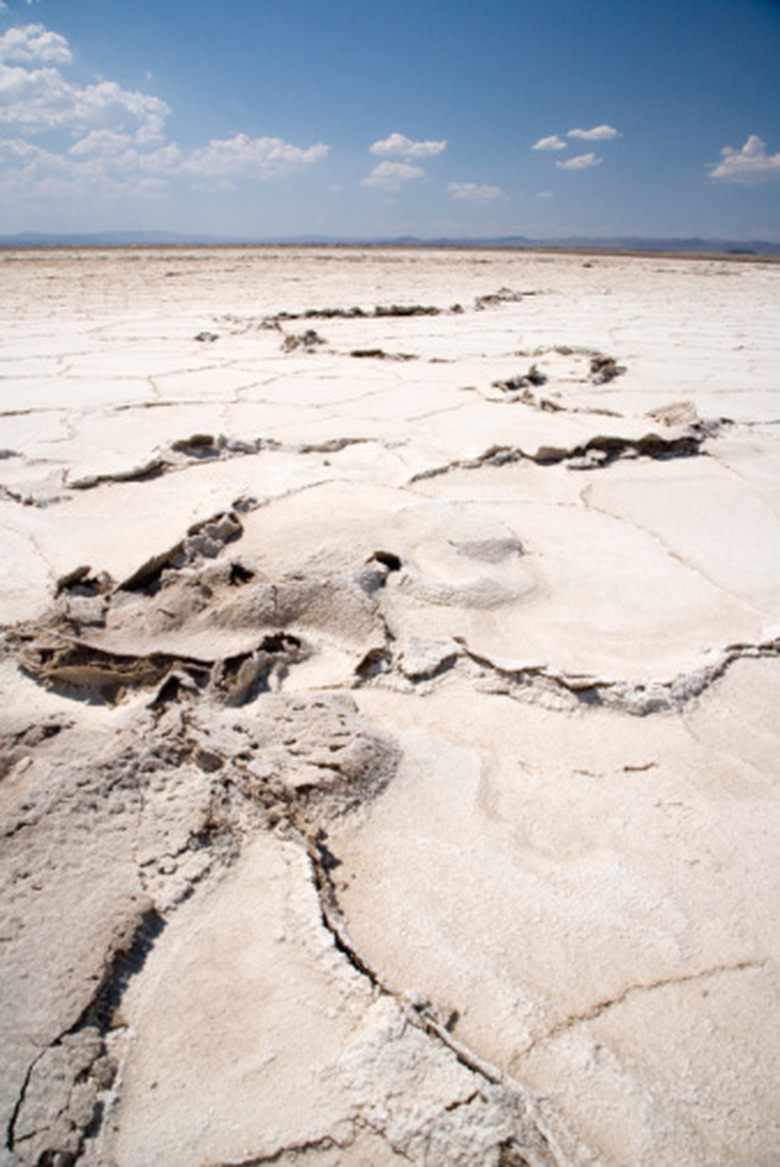What Are Some Positives And Negatives When Earthquakes Happen?
Thousands of small earthquakes occur almost all the time; however, most of these occurrences are too weak to be felt by humans. On average, a major earthquake occurs once per year. A major earthquake is one of the most devastating natural disasters; it can level cities within seconds and can even cause great tsunamis if it occurs under the ocean. Although the disadvantages of earthquakes are clear, they are a natural process that our planet has to undergo in order to release pressures that build up beneath its surface.
Negative: Devastation to Manmade Structures
Negative: Devastation to Manmade Structures
Manmade structures, such as buildings, get damaged heavily when hit by a strong earthquake, making this one of the most obvious cons of earthquakes. Buildings and other structures sometimes even collapse, because the foundation cannot handle the force of the shaking ground. Roads, electrical structures and piping systems also tend to be victims of the earth's sudden forceful movements. This destruction sometimes leads to fires, harmful chemical leaks and massive damage to transportation infrastructures such as bridges.
Negative: Tsunami and Flooding
Negative: Tsunami and Flooding
Earthquakes can also cause tsunamis, which in turn cause massive flooding in coastal areas. When a strong earthquake occurs underwater, it changes the level of the seabed and causes the water level to either rise or fall. Whether it rises or falls, it is a danger to coastal areas because of the creation of huge waves of water that "inundates" on shore. Inundation happens when a large amount of water goes inland in a short period of time, flooding coastal areas. It can destroy vegetation, human structures and even whole coastal communities. An example of massive devastation includes the tsunami from 2004 that occurred in the Far East, affecting massive areas of Thailand and surrounding countries.
Positive Effects of Earthquakes: Engineering
Positive Effects of Earthquakes: Engineering
Because earthquakes are unavoidable and unpredictable, scientists and engineers create ways to make structures quake-resistant and more stable. Places like California, where earthquakes constantly occur, have buildings and structures designed to survive earthquakes. Engineers build quake-resistant buildings by using lighter materials and creating structures that can handle sideway loads, as high-rise structures tend to "sway" during major earthquakes.
Positive: Natural Process of Earth’s Cycle
Positive: Natural Process of Earth's Cycle
Earthquakes happen because our planet needs to "adjust" itself in order to maintain its proper equilibrium. Whether we like it or not, earthquakes are going to happen because tectonic plates continuously adjust and release pressure. Aside from this regular "self-correction," earthquakes also allow nutrients and minerals to cycle from the ocean to the earth's surface. Hugh Ross, one of the astrophysicists in Royal Astronomical Society in Canada, said that "In the absence of an earthquake or tectonic activity, the nutrients needed by living on the land would be undermined from the continent and collected in the oceans."
Cite This Article
MLA
Johnson, Steve. "What Are Some Positives And Negatives When Earthquakes Happen?" sciencing.com, https://www.sciencing.com/positives-negatives-earthquakes-happen-8434732/. 6 August 2018.
APA
Johnson, Steve. (2018, August 6). What Are Some Positives And Negatives When Earthquakes Happen?. sciencing.com. Retrieved from https://www.sciencing.com/positives-negatives-earthquakes-happen-8434732/
Chicago
Johnson, Steve. What Are Some Positives And Negatives When Earthquakes Happen? last modified March 24, 2022. https://www.sciencing.com/positives-negatives-earthquakes-happen-8434732/
